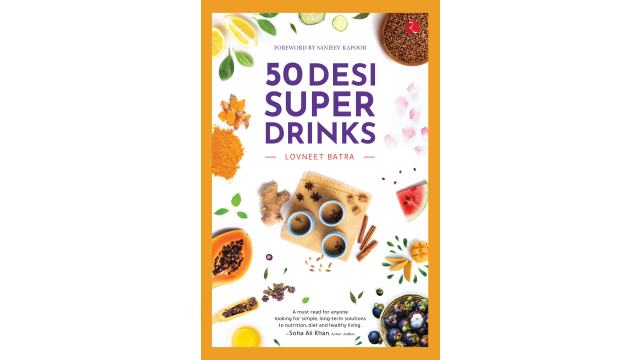Key to Hydration

Hydration is vital for human health. Water bestows a wealth of extraordinary benefits, quenching more than just our thirst and nurturing our bodies in ways that go beyond the mere act of hydration.
According to Gordon Sharp, author of The Ultimate Guide to Hydration — Why Water is the True Elixir of Life, “We need water for virtually every single function in our bodies.”
Water makes up two-thirds of our body. The Total Body Water (TBW) or the water content in a human’s body varies across age and gender: Infants are about 75% water, adult males 60%, women 55%, and the elderly 50%.
Benefits of Hydration
Hydration offers many advantages that positively impact the human body:
Optimal Physical Performance: Adequate hydration is essential for supporting physical endurance, muscle function, and overall athletic performance. Proper fluid balance ensures efficient nutrient transportation, temperature regulation, and joint lubrication, allowing individuals to excel in physical activities.
Improved Cognitive Function: The brain relies heavily on adequate hydration to function optimally. Proper fluid intake promotes mental clarity, concentration, and overall cognitive performance. Studies have shown that even mild dehydration can impair cognitive function, leading to decreased alertness and difficulty in problem-solving.
Efficient Digestion and Nutrient Absorption: Sufficient hydration aids in maintaining a healthy digestive system by facilitating the movement of food through the gastrointestinal tract. It ensures nutrient absorption, prevents constipation, and supports waste elimination.
Enhanced Skin Health: Hydration plays a vital role in maintaining healthy and vibrant skin. Ample fluid intake promotes proper skin elasticity, can minimize the appearance of wrinkles, and assists in the elimination of toxins.
How Much Water Do We Need?
The amount of water everyone needs to drink can vary, depending on factors such as age, sex, activity level, and overall health. Certain conditions like intense physical activity, hot weather, and illnesses increase the need for water.
While specific recommendations may differ slightly between organizations, here are general daily guidelines which also includes water from foods and other beverages.
Infants:
0-6 months: Infants typically obtain adequate hydration from breast milk or formula. Additional water is generally unnecessary.
6-12 months: Introduce small amounts of water (2-4 ounces per day) alongside breast milk or formula.
Children:
1-3 years: Aim for about 4-6 cups (32-48 ounces) of water per day.
4-8 years: Aim for about 5-8 cups (40-64 ounces) of water per day.
9-13 years: Aim for about 8-10 cups (64-80 ounces) of water per day.
14-18 years: Boys should aim for about 11 cups (88 ounces) of water per day, while girls should aim for about 8 cups (64 ounces) of water per day.
Adults:
Men: Aim for about 13 cups (104 ounces) of water per day.
Women: Aim for about 9 cups (72 ounces) of water per day.
Or consume half your body weight in ounces per day.
Older adults: Elderly people may need to adjust their water intake based on their individual needs and health conditions. It is especially important for older adults to stay hydrated as their thirst response may be less reliable.
Please note that the information provided here is not a substitute for professional medical advice, and you should consult with a healthcare professional for personalized recommendations.
Benefits of Hydration
Hydration offers essential nutritional benefits:
Electrolyte Balance: Electrolytes such as sodium, potassium, and magnesium are vital for various bodily functions, including nerve and muscle function, fluid balance, and pH regulation. Proper hydration helps maintain optimal electrolyte levels, ensuring the smooth functioning of cells and organs.
Nutrient Transport: Water is crucial for transporting nutrients throughout the body. It assists in the absorption and distribution of vital vitamins, minerals, and macronutrients, ensuring they reach their intended destinations and support overall health.
Detoxification: Hydration supports the body's natural detoxification processes by aiding in the elimination of waste and toxins through urine, sweat, and respiration. Sufficient water intake promotes efficient kidney function, facilitating the removal of waste and promoting overall detoxification.
“In addition to water, is also important to consume high water content fruits and vegetables such as cucumber, lettuce, celery, and melon to replace important electrolytes that are lost in exercise,” advises Keri Romerdahl, the Director of Nutrition at RoundGlass.
Marian Begg makes vitamin water for hydration.
Best Hydrating Drinks
Water is best but adding healthy drinks as regular part of our daily lives offers variety and various benefits. As Roundglass teacher and nutritionist Mariam Begg says, “Fruits, vegetable peels, and herbs and essence can be part of your hydration as nutritious vitamin waters.” Here are practical ways to ensure adequate hydration:
Hydrating Foods: Incorporate water-rich foods into your diet, such as fruits, vegetables, and soups. These foods provide hydration alongside essential nutrients.
Beverage Choices: Opt for hydrating beverages like herbal teas, coconut water, and fresh fruit juices (without added sugars). Limit consumption of sugary drinks and alcoholic beverages, as they can dehydrate the body.
Krystal Mack makes a hydrating floral switchel
Dehydration Problems
Dehydration can lead to fatigue, muscle cramps, reduced stamina during physical activities, digestive issues, and impair cognitive performance. Dehydration puts strain on the kidneys, hindering their ability to filter waste and toxins effectively. This can contribute to kidney stones and urinary tract infections.
Set hydration reminders on your phone or use apps that prompt you to drink water. This helps establish a routine and ensures consistent hydration throughout the day. By understanding the benefits and adopting healthy hydration practices, we can unlock the potential for improved overall health and vitality.
Key Takeaways
- Hydration boosts body and mind.
- Water supports digestion and gut health.
- Hydration is vital for skin health.







